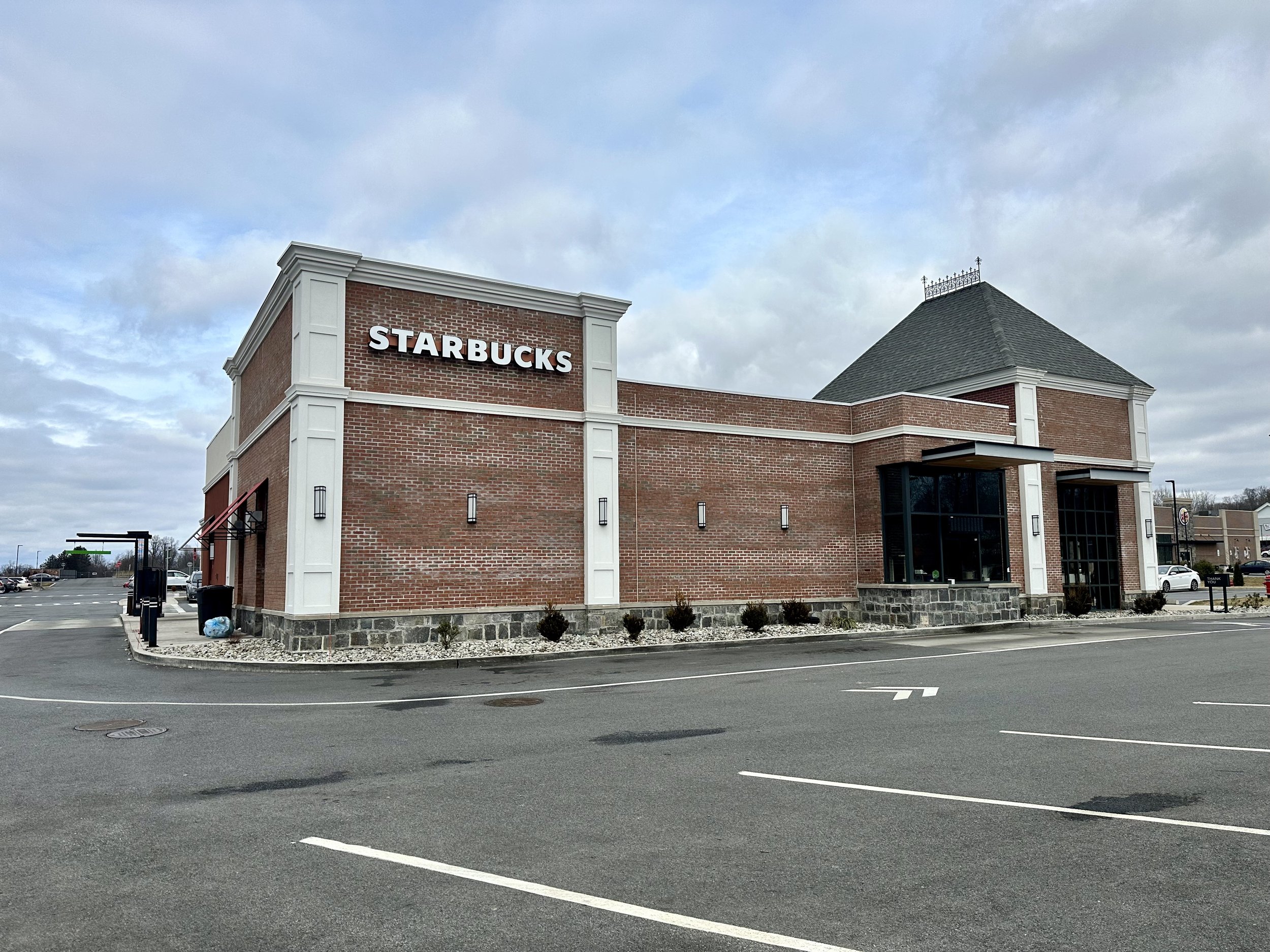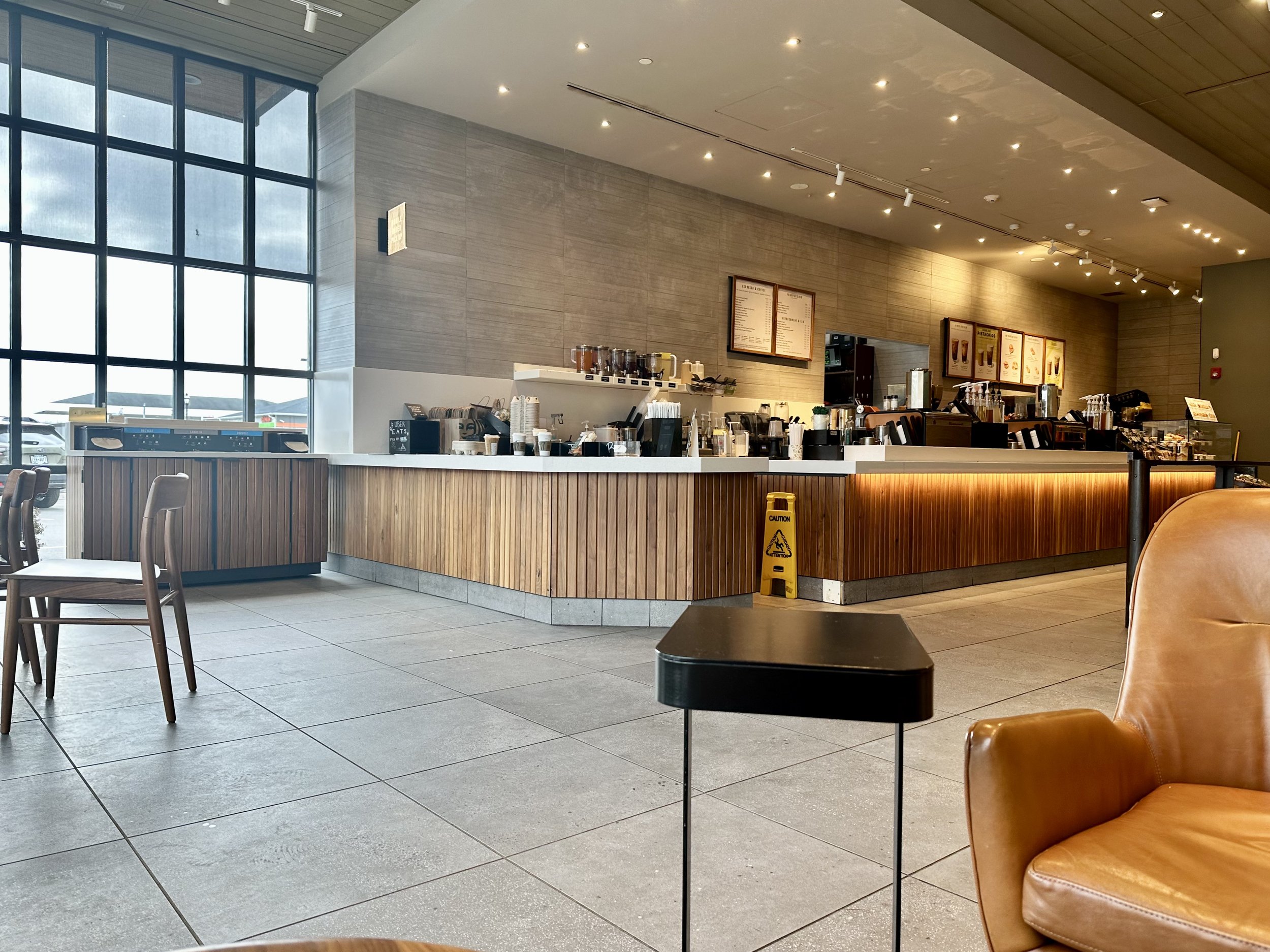Starbucks and McDonald’s Boycotts Continue to Affect Sales
Starbucks with no cars in its drive-through. Credit: Emma Gaecklein ‘26
Starbucks and McDonald’s are feeling the effects of months-long boycotts. However, there is still no end in sight.
Starbucks and McDonald’s are among the largest corporations that have been targeted in a string of boycotts surrounding the Israel-Hamas war.
Between Nov. 16 and early December, Starbucks’ shares dropped 8.96%, equal to losing almost $11 billion in market value and 9.4% of the company’s total value, Business Standard reported.
“Long-term effects of falling stock prices can cripple a business causing layoffs as well as economic hardship for the company,” said Lauren Imperiale, adjunct professor of economics at Marist College. “Based on this, this could also impact suppliers to the boycotted company and their relationship to the business as well as their own economic standing based on association.”
The Starbucks boycott began in response to the company suing Starbucks Workers United, the workers union, after a social media account associated with the union made a post on X (formerly Twitter) stating “in solidarity with Palestine,” as reported by USA Today.
“We vote with our money. It’s just one more thing I can do to aid my people,” said Marist student Amira Aly ‘27.
McDonald’s has also faced a loss in shares following their boycott, with the company reporting its first quarterly sales miss in four years due to slow growth in the international business division.
In a letter posted to LinkedIn, McDonald’s CEO Chris Kempczinski acknowledged the dip in sales, saying, “I recognize that several markets in the Middle East and some outside the region are experiencing a meaningful business impact due to the war and associated misinformation that is affecting brands like McDonald’s.” Shares in McDonald’s dropped four percent after the letter was posted.
“We live in a capitalist world and a very capitalist country,” said Sereen El Jamal ‘24, co-president of the Muslim Student Association at Marist. “We are trying to let these companies know that they don’t control us. We the consumers have a choice, and our choice will make a difference.” El Jamal added, “I used to spend a good $200 or $300 a month at Starbucks, and so did my sister. As soon as this happened, we all cut it off like nothing. We found our alternatives.”
A relatively empty lobby at the Winslow Gate Starbucks. Credit: Emma Gaecklein ‘26
Ready Coffee, The Poughkeepsie Grind on Main Street and The Crafted Kup are some local alternatives available for Marist students who want their caffeine fix, but wish for something other than Starbucks.
BlackRock and Vanguard, two major investment firms, are also among the list of companies being criticized. According to a 2023 report by the Institute of Public Accuracy, the two firms are the two largest shareholders in six major media companies, which control over 90% of U.S. media, including Fox, CBS and News Corp.
“BlackRock also has major shares in the weapons manufacturing companies that are manufacturing the bombs being dropped on Gaza,” said El Jamal. “So it’s in their interest for the genocide to continue because they’re making money off of the weapons. So why would they allow the media outlets, that they own so much of, to portray anything but support?”
“These companies could come out right now and say, ‘Free Palestine, from the river to the sea,’ and I won’t go back because the damage has been done,” said El Jamal.

